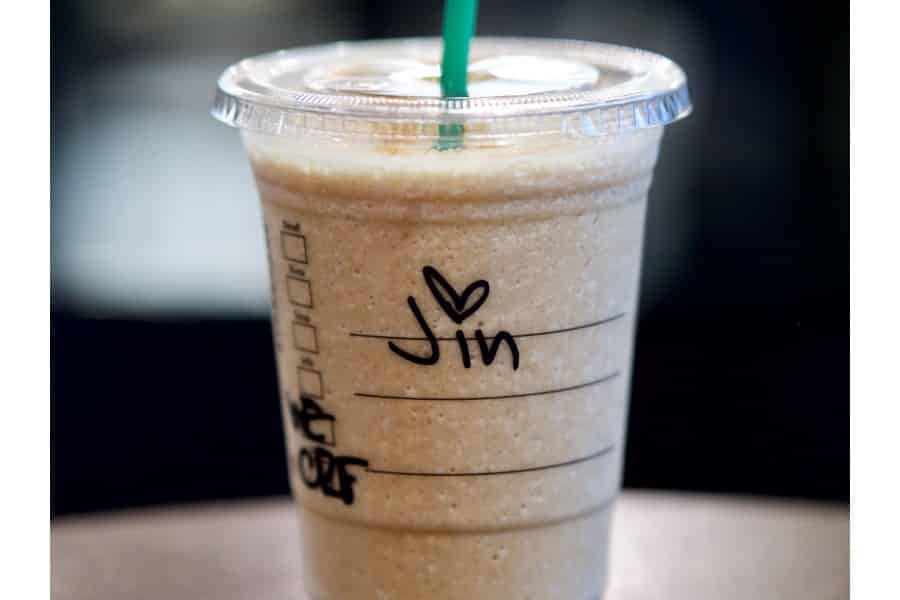I know the insult is forthcoming, and I’m disappointed that I cannot prevent it. I’m even more saddened because the anticipated slight will emerge, collectively, from the four most important people in my life.
As the waitress approaches, I immediately zero in on her nametag. She introduces herself, regurgitates the daily specials, asks about drinks…you know the routine.
As she’s about to depart for her next table, like a bumble bee to a rosebud, I address her by her name and thank her.
Her name is barely off my tongue and through my lips when four pairs of eyeballs roll…simultaneously. You know…THAT eyeroll. The one where your wife and daughters believe that you’ve committed the most embarrassing, egregious offense you can possibly commit in a public space – using the waitress’s name.
What really wads my ladies’ panties is when a service provider has an unusual name, or a challenging spelling. Because, then I compound my crime against humanity by asking the individual to say his or her name for me, so I don’t butcher it when I address them.
“Dad, they don’t actually want you to use their name, it’s just a formality.”
“Then they should not have a placard affixed to their company shirt stating their name.”
“Really, Dad?”
Really, because here’s the thing about using a person’s first name…according to the ultimate motivator, Dale Carnegie, “Remember that a person’s name is to that person the sweetest and most important sound in any language.”
In a study from the Michigan State University Extension, “Using a person’s name in conversation creates a culture of respect, recognition and consideration for the discussion.” In an article at The Good Men Project, it stated, “the use of their name will ensure they will remember how you made them feel.”
When I walk into my local Starbucks, I feel like Norm Peterson walking into Cheers. Keith Hidenfelter wears many hats, but whether he’s taking orders at the drive-through, putting a scone in the oven or filling the ice bin, he always says, “good morning, Dave.” Emily is one of the baristas and she always greets me using my first name, regardless of the task she’s performing.
Starbucks began this initiative a decade ago, and the company felt so strongly about it they launched a massive advertising campaign to let everyone know that they were going to use your first name instead of the drink that you ordered. In a Marketing Week article, the company basically said that things had become a little too impersonal, and it wanted to improve the culture in its stores. On the Starbucks website, under the company culture tab, it talks about how their stores are a neighborhood gathering place.
Why do people spend $5.00 or more for a cup of coffee? Is Starbucks coffee better than any other coffee out there? I can’t answer that because I’m a tea snob. I know lots of coffee drinkers who don’t think Starbucks coffee is the best product on the market, but they pay ridiculous sums of cash for the EXPERIENCE.
What strategies are small business owners coaching employees to utilize to improve your customers’ experience? What do you do that makes customers feel comfortable? That makes customers feel welcome and appreciated? Have you surveyed your regular guests/customers to discover why they keep coming back? Equally important, are there things your team members do that might turn customers OFF?
Our family refrains from fast food as a regular meal (pizza doesn’t count as fast food), but when I want a night off from the stove or the grill, we usually opt for Chick-fil-A. Even though I don’t have capacity for comparison, the chicken sandwich is pretty darn good. The waffle fries aren’t bad if you get them hot. The fries aren’t the best but probs top three. But I enjoy the drive-through experience.
When you receive your bag of chicken, and thank the operator, they say, “My Pleasure.” Not, “you’re welcome.” And there’s strategy around that as well. It’s only two words. About two decades ago, company founder, Truett Cathy was staying in a Ritz-Carlton hotel, and he noticed that every time he thanked a hotel employee, they responded, “my pleasure.”
Cathy was attempting to expand his franchise and to make the brand stand out from other fast-food joints that had reputations for subpar customer service. He asked his managers and staff to start saying, “my pleasure,” when customers thanked them. Cathy believed that using that phrase would surprise customers and make his brand unique in the industry. He thought it was a “head-turner.”
Cathy didn’t know that there is science behind those two words. In a “Money Watch” segment for CBS News, Michael Hess said the six best words in customer service are: Delighted, Absolutely, Pleasure, Happy, Sorry, and Yes.
Hess went on to say that “People respond positively to words that are active rather than passive; words of genuine compassion and empathy suggest that you are not just carrying the company line or reading from a memo; delivering those words in a cheerful, upbeat, and most importantly, natural manner suggests one human being’s desire to help another.”
Some research indicates that even if your product or service might be a notch below a competitor’s offering, if you provide a significantly greater customer experience, you can exceed the competition.
Are you evaluating your customers’ experience? Are you strategizing about how you can improve your customers’ experience? What ways can you improve your customer experience that will separate you from your competition?
It doesn’t have to be complicated. It can be as easy as using someone’s name.
- You Gotta Earn It! - January 29, 2026
- He Didn’t Have to Do It - December 22, 2025
- We Got a Freebie - December 2, 2025

